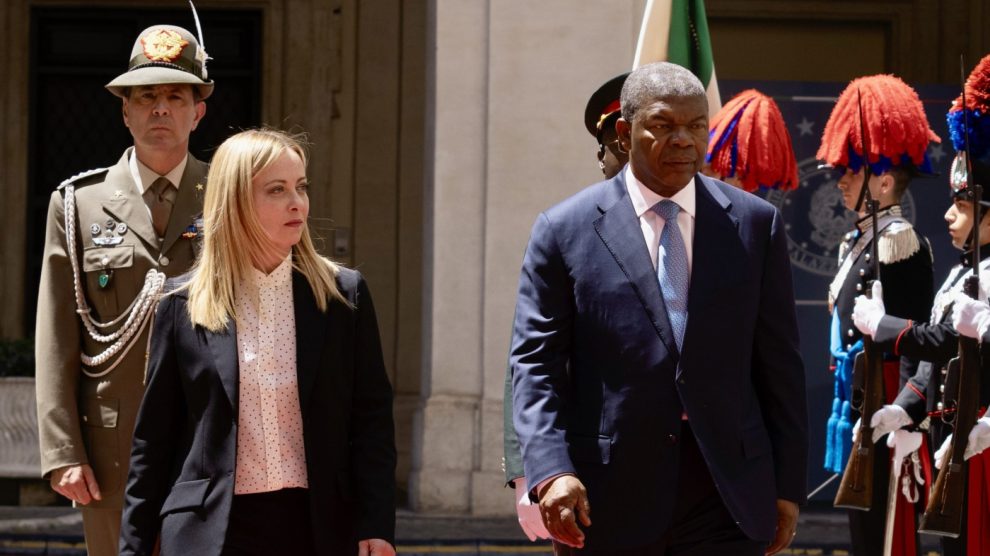Italy and Angola grow closer. On Wednesday, Italian President Sergio Mattarella and Prime Minister Giorgia Meloni welcomed Angolan President João Manuel Gonçalves Lourenço for his State visit to Rome. The leaders later touted the “excellent” bilateral relation and spoke of strengthening it even further.
- “We have confirmed the great friendship that exists between Angola and Italy, the great ongoing collaboration,” said the Italian President. His Angolan counterpart highlighted the growing commercial exchange, especially in the field of energy, and stressed the shared desire to enrich it with other sectors, such as furniture, wood, and food.
Getting down to business. According to an official readout, talks between President Lourenço and PM Meloni centred on further strengthening economic relations, especially in the fields of energy, agro-industry and the ecological transition.” The leaders also touched upon the main regional crises, especially that in Sudan and the Great Lakes Region, stressing the importance of ensuring the stability and prosperity of the African continent “with a view on building an equal and mutually-beneficial partnership.”
Focus on critical raw materials. The Algerian President also announced a new deal between the Italian and Algerian energy companies, which share a long-standing and cross-sectoral history of cooperation. Eni’s CEO, Claudio Descalzi and Sonangol’s Chairman, Sebastião Pai Querido Gaspar Martins, signed a memorandum of understanding to further expand their work.
- The MoU encompasses new forms of cooperation on critical raw materials – those underpinning green technologies such as batteries – which have been a shared focus of Western allies looking to de-risk their China-reliant supply chain.
- Both Angola and Italy have joined the US-led Minerals Security Partnership, which aims to promote ethical and responsible mining, processing, and recycling of critical minerals.
More from the Eni-Sonangol deal. The two companies will “jointly identify and evaluate opportunities in the area of the energy transition, including agri-business chains for the production of lower-carbon fuels, valorisation of residual biomass and green ammonia for agro-industrial applications.” They also aim to cooperate within the innovation ecosystem, including capacity-building, assessing and developing digital solutions relating to the energy transition and agri-food sectors, including through support for start-ups and SMEs.
- As it diversified away from Russian gas, Italy turned to Angola and other African nations for increased supplies. In August 2022, Eni also established a joint venture with BP (Azule Energy) dealing with hydrocarbons exploration & production, LNG and solar.
The African pivot. President Lourenço’s visit is the latest of a string of high-level diplomatic contacts between Italy and African nations – including State visits to and from Algeria, Libya, Egypt, Ethiopia, Kenya, Somalia, and Tunisia. The Meloni government intends to foster deeper cooperation with the continent and contribute to stabilising it, hoping to spearhead the European Union’s response to the likes of China’s Belt and Road Initiative – the so-called Global Gateway programme.
- As Defence Minister Guido Crosetto recently remarked, Rome “has more space for interlocution and cooperation” with African nations compared to other European capitals.
- PM Meloni announced that she would present the so-called “Mattei Plan” – hinged on non-exploitative investments, energy cooperation, development and infrastructure with African countries – in October.
- “It is important to understand that we cannot successfully define a roadmap that combines humanitarian and development tools to reduce needs in the medium term without ensuring that the beneficiaries are involved every step of the way,” as posited by Foreign Minister Antonio Tajani.




